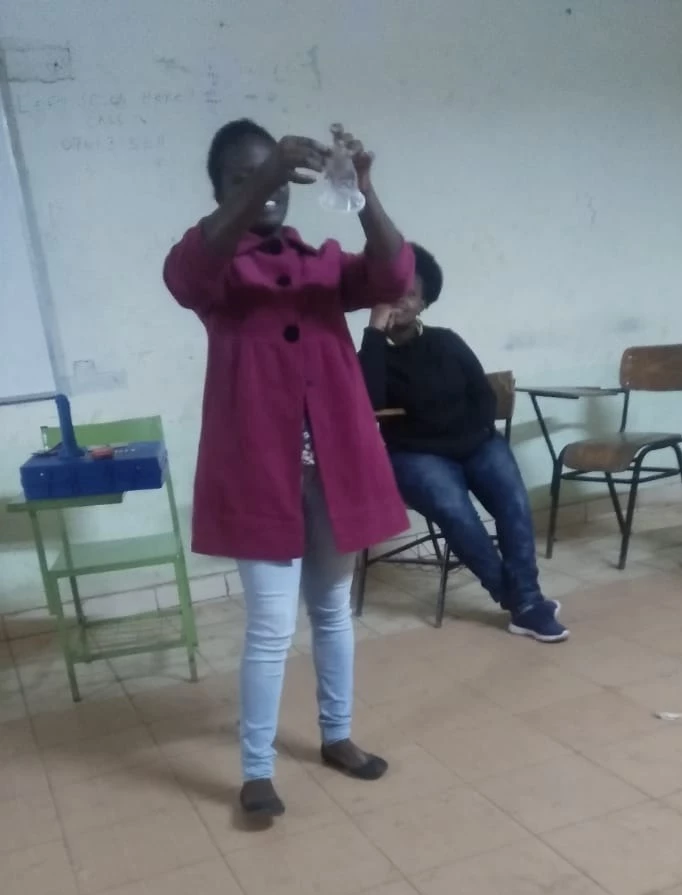Preamble
In collaboration with Kenya Red Cross – JKUAT Chapter, Ryculture Health and Social Innovation hosted a sexual and reproductive health awareness session on 5th June 2019 during the club meeting from 5:30pm to 7:00pm.
The discussion was aimed at:
- Outlining the importance of sex education with focus on responsible sex
- Highlighting the social consequences of sexually transmitted diseases and HIV/AIDs
- Creating a safe space/forum where the students and young people in general can talk about sex freely without fear of being judged
- Enlightening the students on the concepts of safe sex, responsible sex to include contraception use as means of averting the concerns that plague the society with regard to sex and sexuality.
Narration
The event was curated into two (2) sessions:
- Presentation forum.
- Questions open forum.
- Presentation forum
Perpetual, an outspoken leader with LEAP, presented her work on experiences dealing with concerns in the sexual reproductive health and rights sphere. Her focus areas were on abstinence, safe sex, and the consequences of unsafe sexual behavior on individuals.
It was acknowledged that the rate of HIV transmission among university students have been on an unprecedented high. This in partly attributed to the sexual propensity among young people coupled with the social lifestyles that have been adopted. Unwanted pregnancies have also increased which affects majorly the ladies who in certain cases have to take study leaves to nurse their pregnancy, deliver and raise their child before resuming studies. In other cases, they adopt abortions which at worst are not always safely procured risking lives of these ladies. These form sufficient reason for young people to embrace responsible sexual conduct such as abstinence, use of contraception measures & protection as well faithfulness in relationships.
Safe sex encompasses sexual consent between right thinking individuals to have sex, how to have sex, when to have sex and the conditions in which the sex is to happen. This gives room for individuals to decide on whether and which contraceptive methods to use, right to choose whether to have sex which helps tackle sexual and gender based violence (SGBV) and any related concerns. These are bound to contribute to a decline on the social problems that have been associated with irresponsible and unsafe sexual behaviors.
She demonstrated the use of different condoms as well as the other contraception methods were highlighted. She reiterated the need to establish safe spaces for those who are suffering the consequences of unsafe sexual behavior e.g. violence, infections and supporting access to care when and where needed.
Lorna, a guest from Marie-Stopes Kenya, followed up on the conversation and demonstrated the varied contraception methods e.g. contraception pills, intrauterine devices, injectable hormonal contraceptives, implants etc. She highlighted the fact that as a society we are financially constrained and this puts extra strain on individuals when they sire many children. This provides a basis for which we need to embrace contraception/ family planning methods to help us cope and plan our sexual lives only to procreate when we want to.
Abuse of hormonal contraceptives were also discussed with the most misused being the morning after pill, commonly known as P2. This has a long term effect on the ladies as they influence their hormonal levels and may contribute to varied side effects which are undesirable maybe not in the short term but ultimately will catch up with those who abuse them.

Club members following on the discussions
Family planning is not a women affair. It is our common responsibility. We all have a role to play when it comes to sex and as such contraception shouldn’t be an exemption.
Wycliffe Oruru, a medical student in the university also chimed in to share insights on the same concerns on consent and contraception use.
- Questions Open Forum
The audience were granted a chance to ask their questions on the topic for which the key concerns were on;
- Role of men in SRHR and especially contraception use which is usually left to women.
- The safety and efficacy of withdrawal method “coitus interruptus” and day counting as contraception methods.
- Availability of female condoms was noted to be a challenge with male condoms being the most available ones.
- Exposition on the general well-being of women was discussed and audience encouraged to consider further learning on the area.
The key points to take home were:
- Sex education is a necessity among the youth with special focus on sexual responsibility. Failure to offer sex education will contribute to the pill up of consequences of unsafe sexual behavior which are undesirable.
- Young people need to embrace values and consider abstinence as an option unless where it’s not feasible then they should be responsible to practice safe sex i.e. use condoms or contraception methods.
- Contraceptives are essential in planning pregnancies however due to individual disparities, their use should be advised by qualified physicians. This is with regard to method to use, means of use and effectiveness.
- Consent is a critical aspect of sexual conduct and young people should be bold enough to speak up and be deliberate in their choices when it comes to having sex.
- Compassion and social responsibility should be ingrained among the youth to help shun stigma and discrimination against those affected or infected as a result of unsafe sexual behavior.
- Advocacy for safe sex, responsible sex and SRHR should be embraced by everyone to champion for the rights of all to have healthy sex lives without fear of being judged and with access to all essentials to lead a healthy sex life.
Author: Daniel Waruingi; Director Corporate Relations, Ryculture Health and Social Innovation


Thank you for your sharing. I am worried that I lack creative ideas. It is your article that makes me full of hope. Thank you. But, I have a question, can you help me?
Can you be more specific about the content of your article? After reading it, I still have some doubts. Hope you can help me.